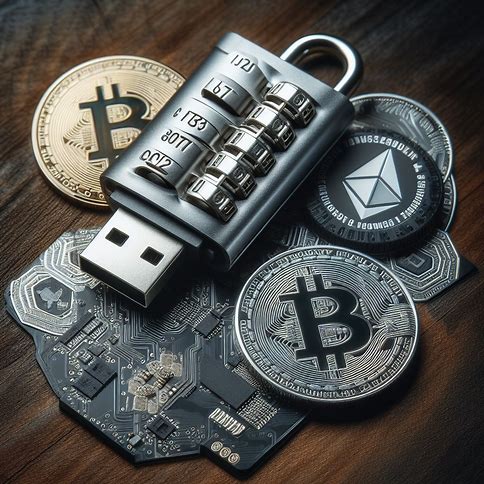In cryptocurrency, security is highly important. With numerous exchanges available today, you need to choose one that values the safety of your digital assets. Here are cryptocurrency exchanges with best security features in 2024.
1. Coinbase
Coinbase, a leading cryptocurrency exchange based in the United States, has built a solid reputation for its commitment to security. The exchange use a multi-layered approach to protect user funds and personal information. One of the most valuable features is the use of cold storage, where a significant portion of user assets are stored offline, making them inaccessible to potential hackers. Coinbase also implements two-factor authentication (2FA) for all user accounts, adding an extra layer of protection against unauthorized access.
2. Kraken
Kraken is yet another prominent exchange that takes security very seriously. The platform undergoes regular security audits to identify and address any potential vulnerabilities. Kraken also uses cold storage for the majority of user funds, ensuring that they are kept out of reach from online threats. Additionally, the exchange offers various account security features, such as 2FA, IP address whitelisting, and global settings lock, which prevents unauthorized changes to account settings.
3. Gemini
Gemini, founded by the Winklevoss twins, places a strong emphasis on security and regulatory compliance. The exchange is licensed by the New York State Department of Financial Services (NYSDFS) and adheres to strict security standards. Gemini use cold storage for user funds and has implemented a robust cybersecurity program. The exchange also offers features like 2FA, hardware security key support, and address whitelisting to enhance account security.
4. Binance
Binance, one of the world’s largest cryptocurrency exchanges, has implemented a comprehensive security framework. The exchange uses a multi-tier and multi-cluster system architecture to ensure high availability and secure storage of user assets. Binance also employs advanced techniques such as AI-powered fraud detection and risk management systems to identify and prevent potential security threats. Users can enable 2FA and use hardware security devices for added protection.
5. KuCoin
KuCoin is a Singapore-based exchange, it prioritizing user security through various measures. The platform stores the majority of user funds in cold wallets, which are offline and protected from potential hacks. KuCoin also implements multiple layers of encryption to safeguard user data and transaction information. The exchange supports 2FA and offers features like IP address restriction and device management to enhance account security.
6. OKX
OKX, formerly known as OKEx, is a cryptocurrency exchange that takes security seriously. The platform employs a combination of cold and hot wallets to store user funds securely. OKX also implements a multi-signature mechanism for wallet management, requiring multiple authorized personnel to approve transactions. The exchange supports 2FA and offers features like IP address whitelisting and login alerts to help users monitor their account activity.
7. Bybit
Bybit, a derivatives exchange, prioritizes the security of user funds and personal information. The platform uses cold storage for the majority of user assets and implements multi-signature wallets for added protection. Bybit also uses advanced security measures such as SSL encryption, 2FA, and regular security audits to identify and address potential vulnerabilities.
8. Bitstamp
Bitstamp, one of the oldest cryptocurrency exchanges, has a strong focus on security. The exchange stores user funds in cold wallets and implements multi-signature technology for added protection. Bitstamp also use advanced security measures such as 2FA, IP address whitelisting, and regular security audits. The exchange has a track record of maintaining a secure platform and promptly addressing any security incidents.
9. eToro
eToro, a multi-asset trading platform that supports cryptocurrencies, places a strong emphasis on user security. The platform employs various security measures, including SSL encryption, 2FA, and secure cold storage for user funds. eToro also implements advanced monitoring systems to detect and prevent suspicious activities. The exchange provides users with educational resources to help them stay informed about security best practices.
10. BitMEX
BitMEX, a derivatives trading platform, prioritizes security through a range of measures. The exchange uses cold storage for the majority of user funds and implements multi-signature wallets for added protection. BitMEX also employs advanced security features such as 2FA, IP address whitelisting, and email notifications for account activity. The platform undergoes regular security audits to identify and address any potential vulnerabilities.
11. Bitso
Bitso, a Mexico-based cryptocurrency exchange, places a strong focus on security. The platform uses cold storage for user funds and implements multi-signature technology for added protection. Bitso also offers features like 2FA, IP address whitelisting, and device management to enhance account security. The exchange adheres to strict security standards and undergoes regular security audits.
12. Bittrex
Bittrex, a US-based exchange, prioritizes the security of user funds and personal information. The platform utilizes cold storage for the majority of user assets and implements multi-signature wallets for added protection. Bittrex also uses advanced security measures such as 2FA, IP address whitelisting, and regular security audits. The exchange has a track record of maintaining a secure platform and promptly addressing any security incidents.
Related: Cryptocurrency Exchanges With Best User Interface
13. Cash App
Cash App, a mobile payment service that supports Bitcoin transactions, takes security seriously. The platform employs various security measures to protect user funds and personal information. Cash App uses encryption to secure user data and implements 2FA for account access. The platform also provides users with a secure PIN code and the ability to disable their account if their device is lost or stolen.
14. Okcoin
Okcoin, a global cryptocurrency exchange, prioritizes user security through a range of measures. The platform employs cold storage for the majority of user funds and implements multi-signature technology for added protection. Okcoin also offers features like 2FA, IP address whitelisting, and device management to enhance account security. The exchange undergoes regular security audits and maintains a bug bounty program to identify and address potential vulnerabilities.
15. Robinhood
Robinhood, a popular trading app that supports cryptocurrency trading, places a strong emphasis on security. The platform uses various security measures to protect user funds and personal information, including encryption, secure storage, and 2FA. Robinhood also provides users with educational resources to help them stay informed about security best practices and potential risks associated with cryptocurrency trading.
Key Takeaway
1. These measures include cold storage, multi-signature wallets, two-factor authentication, IP address whitelisting, and regular security audits.
2. By selecting an exchange with strong security features and practicing good security habits, users can minimize the risks associated with cryptocurrency trading and storage.
3. The platform utilizes cold storage for the majority of user assets and implements multi-signature wallets for added protection.
4. Bittrex also uses advanced security measures such as 2FA, IP address whitelisting, and regular security audits.
Frequently Asked Questions
1. What is cold storage, and why is it important for cryptocurrency exchanges?
Cold storage refers to the practice of storing cryptocurrency offline, away from potential online threats. Exchanges that use cold storage keep a significant portion of user funds in offline wallets, reducing the risk of hacks and theft.
2. Is two-factor authentication (2FA) necessary for cryptocurrency exchanges?
Yes, 2FA is a crucial security feature that adds an extra layer of protection to user accounts. By requiring a second form of verification, such as a phone app or hardware security key, 2FA makes it much harder for unauthorized individuals to gain access to your account.
3. What is multi-signature technology, and how does it enhance security?
Multi-signature technology requires multiple authorized parties to approve a transaction before it can be executed. This means that even if one private key is compromised, the funds cannot be moved without the approval of other key holders, reducing the risk of unauthorized transactions.
4. How often should cryptocurrency exchanges undergo security audits?
Reputable cryptocurrency exchanges should undergo regular security audits, usually conducted by third-party firms, to identify and address potential vulnerabilities. The frequency of these audits may vary but should be done at least annually or whenever significant changes are made to the platform.
5. What is IP address whitelisting, and how does it help protect user accounts?
IP address whitelisting allows users to restrict access to their accounts to specific IP addresses. This means that even if someone obtains your login credentials, they won’t be able to access your account unless they are using an approved IP address.
6. Can cryptocurrency exchanges guarantee the safety of user funds?
While reputable exchanges implement robust security measures, no platform can guarantee 100% safety of user funds. It’s essential for users to practice good security habits, such as enabling 2FA, using strong passwords, and keeping their devices secure.










